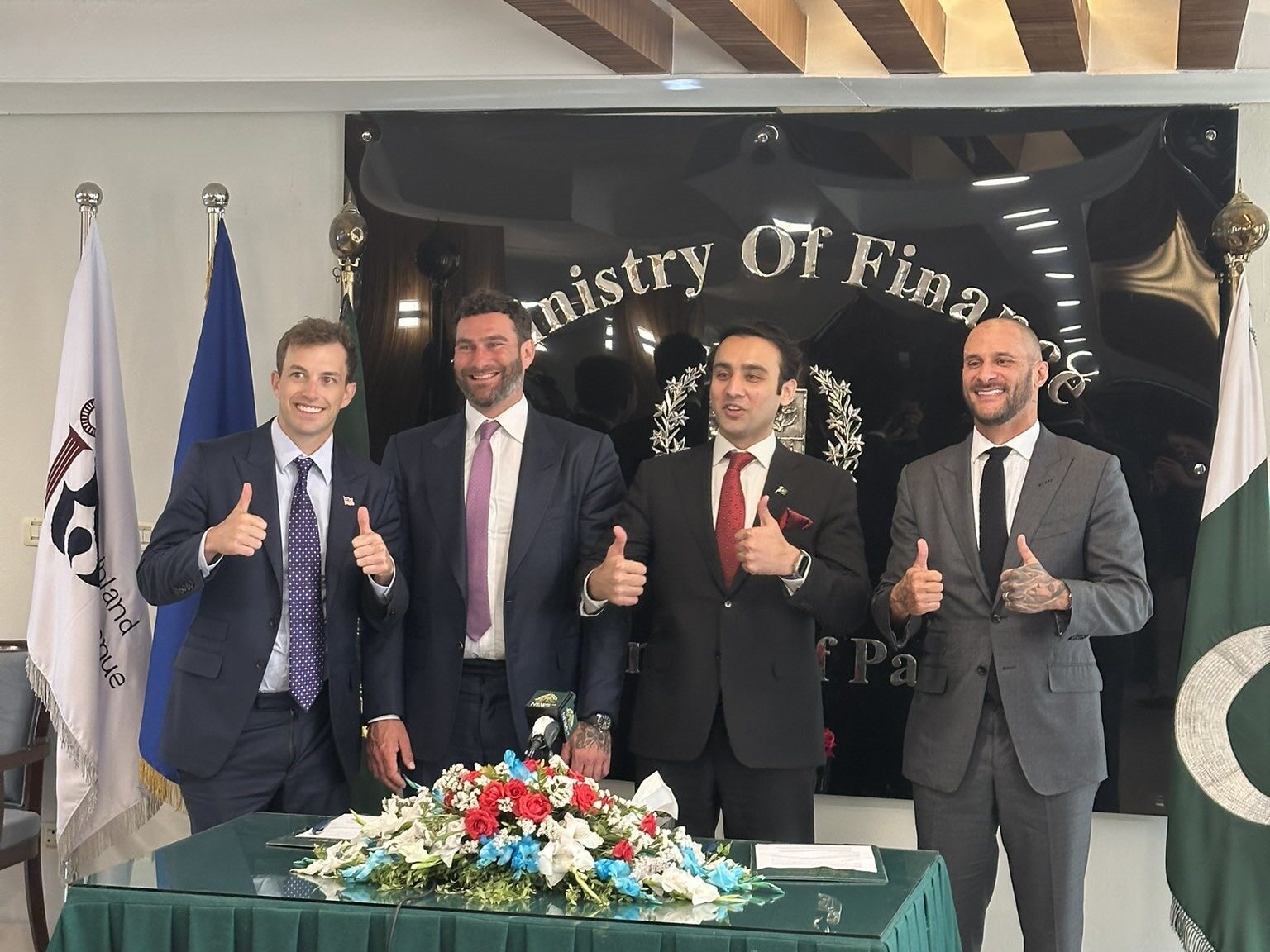
Pakistani Chief of Army Staff Field Marshal Asim Munir’s visit to the United States this week is attracting considerable attention for its potential to turn the tide of bilateral ties. Even before the visit, there were some positive indications about the trajectory of the relationship—with President Donald Trump announcing that the United States was in negotiations with Pakistan to potentially reduce the 29 percent tariffs that his administration had proposed putting on the country. But a U.S.-Pakistan reset has been attempted various times in the last decade, and though Islamabad has made some bold moves to curry favor with the Trump administration recently, it is unclear whether Pakistan can sustain U.S. interest. Munir’s visit brings into sharp focus the debate on whether the two countries are finally poised to build a path toward improved strategic and economic cooperation or if their bilateral relationship will continue to be adrift and uncertain.
Pakistan’s Immediate Need for Positive U.S. Engagement
For Pakistan, fostering and maintaining stable relations with the United States has never been more critical. This is not only due to Islamabad’s economic vulnerabilities but also because of its continued dependence on the kind of security assistance that only Washington is able to offer. However, for President Trump—who has fundamentally changed the way America engages with the world—any potential deal with Pakistan will not come without conditions. His foreign policy has oscillated between transactionalism, indifference, and outright hostility, often replacing traditional diplomacy with personalized, leader-to-leader dealmaking.
Trump has consistently signaled—through both rhetoric and policy—that any alliance with the United States must deliver tangible benefits for American interests. For a country like Pakistan, this makes identifying and presenting common ground a prerequisite for any substantive agreement. However, beyond offering economic incentives, Islamabad faces an additional condition: Trump has explicitly hyphenated Pakistan with India, making it clear that any potential trade deal will also depend on both countries’ willingness to adopt a non-confrontational posture toward each other and honor the ceasefire he claims to have brokered in the recent India-Pakistan conflict in May.
This condition places Pakistan in a delicate position: it must not only offer trade incentives that support U.S. prosperity but also demonstrate the geopolitical flexibility to maintain peace with India. Failure to fulfill either requirement risks undermining the type of engagement Islamabad seeks from Washington.
In this context, building personal relationships with President Trump or his close associates as well as offering mutually beneficial, win-win agreements in areas of U.S. interest can become a crucial catalyst for fostering trust and long-term cooperation. This seems to be the approach Pakistan has adopted, both with the Munir visit as well as some other moves it has made over the past few months.
Pakistan must not only offer trade incentives that support U.S. prosperity but also demonstrate the geopolitical flexibility to maintain peace with India.
Pakistan’s Bid to Gain Favor with the Trump Administration
Pakistan appears to have begun aligning itself with President Trump’s strategic priorities, as evidenced by two major initiatives it has undertaken in the past few months.
First, considering President Trump’s focus on acquiring rare earth minerals, establishing a cryptocurrency reserve, and efforts to make the United States a global leader in artificial intelligence, Pakistan has framed its outreach to Washington as directly responding to and reflecting these themes. To start, Islamabad hosted a Mineral Investment Forum in April, where it promoted opportunities for American firms to invest in its estimated USD $6 trillion worth of untapped mineral reserves—offering favorable concessions and attractive profit margins. In addition, Islamabad announced its intention to pursue a zero-tariff bilateral trade agreement with Washington, aimed at deepening economic ties, expanding market access for American firms, and narrowing the trade deficit—particularly by increasing its imports of American crude oil. These proposals reflect Pakistan’s intent to broaden cooperation, and these moves have reportedly drawn favorable interest from the Trump administration.

Second, Pakistan has entered into a high-profile cryptocurrency partnership with World Liberty Financial (WLF)—a firm linked to the Trump family and aiming to become a global leader in cryptocurrency and artificial intelligence. As part of this initiative, Pakistan hosted WLF co-founder Zachary Witkoff (the son of U.S. Special Envoy to the Middle East Steve Witkoff), who held meetings with senior Pakistani officials, including Field Marshal Asim Munir. This outreach paved the way for a notable milestone for Pakistan as its minister-rank Special Assistant to the Prime Minister for Crypto and Blockchain was invited to speak at a prominent cryptocurrency and AI conference in Las Vegas, attended by U.S. President JD Vance and President Trump’s sons. There, he made a compelling case for Pakistan’s strengths in affordable, high-yield bitcoin mining and its potential to become a hub for AI data infrastructure.
While these concessions and partnerships may help, Pakistan needs to consider additional incentives to strengthen ties with the United States and sustain Trump’s interest in the relationship. Broader economic measures—such as lowering duties for U.S. agricultural exports, liquified natural gas for energy needs, and construction equipment—could further advance the potential of a long-term relationship.
Strategic Realities and Future Trajectory
The ongoing tariff negotiations present Pakistan with a unique opportunity: to engage directly with Washington and showcase the full spectrum of its economic and strategic offerings—something not easily achievable under routine trade conditions. For Islamabad, renewing American interest in Pakistan may serve two strategic objectives. First, the entry of U.S. companies would inject much-needed foreign direct investment into Pakistan’s economy. Second, the physical presence of American firms—particularly in vulnerable regions such as Khyber Pakhtunkhwa and Balochistan, rich in natural resources but prone to insecurity—could prompt stronger U.S.-Pakistan counterterrorism cooperation.
However, investing in Pakistan remains a calculated gamble for American firms—largely due to Pakistan’s close strategic and economic ties with China. To benefit fully from Pakistan’s market, U.S. companies may need to engage with projects under the China-Pakistan Economic Corridor (CPEC), which is a flagship component of China’s Belt and Road Initiative—a program Washington views with caution. This presents a complex challenge for Islamabad: how to uphold its commitments under CPEC while also positioning itself as a credible and independent economic partner to the United States.
Pakistan has long been trying to construct a narrative aimed at reassuring Washington that its cooperation with Beijing will neither undermine U.S. interests nor be dominated by China’s growing influence in the region. But it remains too soon to tell whether the Trump administration will be persuaded by this narrative, especially given Pakistan’s history of overcommitting and making promises to Washington that it later struggles to fulfill. The Pakistan-China relationship offers a similar example: despite high ambitions, Pakistan has yet to fully reap the economic benefits it anticipated from its partnership with China. This raises a critical question— can Pakistan develop and maintain a parallel strategic partnership with the United States? The Trump administration’s confidence in Pakistan’s renewed outreach will likely depend on Islamabad’s ability to turn intentions into credible, concrete actions. In this light, the ongoing tariff negotiations are more than just a policy discussion; they mark the first step on a long and uncertain journey—one that will challenge Pakistan’s diplomatic skill, economic strength, and strategic focus.
To benefit fully from Pakistan’s market, U.S. companies may need to engage with projects under the China-Pakistan Economic Corridor […] This presents a complex challenge for Islamabad: how to uphold its commitments under CPEC while also positioning itself as a credible and independent economic partner to the United States.
Pakistan’s broader effort to cultivate personal connections with influential figures close to President Trump, given his well-known preference for direct, leader-to-leader diplomacy, are also critical to relationship-building. Given Field Marshal Munir’s pivotal role in shaping Pakistan’s domestic and foreign policies and his position as a long-term power player, it is likely that Trump will engage with him directly during this visit, recognizing that Munir’s decisions will significantly influence the future trajectory of the Pakistan-U.S. relationship. On his part, President Trump has already praised Pakistan’s leadership, calling its people “smart” and expressing a strong interest in expanding bilateral trade. Such comments have generated optimism in Pakistan that Trump seeks a more favorable and engaged partnership. Taken together, these developments could be a major factor driving a potential recalibration of Pakistan’s approach to its relationship with the United States, with trade, technology, and strategic resource cooperation becoming central to its strategic outlook toward Washington. A lot will depend on how this week in Washington goes.
Views expressed are the author’s own and do not necessarily reflect the positions of South Asian Voices, the Stimson Center, or our supporters.
Also Read: Sanctions against Pakistan’s Missile Program: Shifting U.S. Priorities in South Asia
***
Image 1: PA-EFE/Handout via SCMP
Image 2: Zach Witkoff via X


